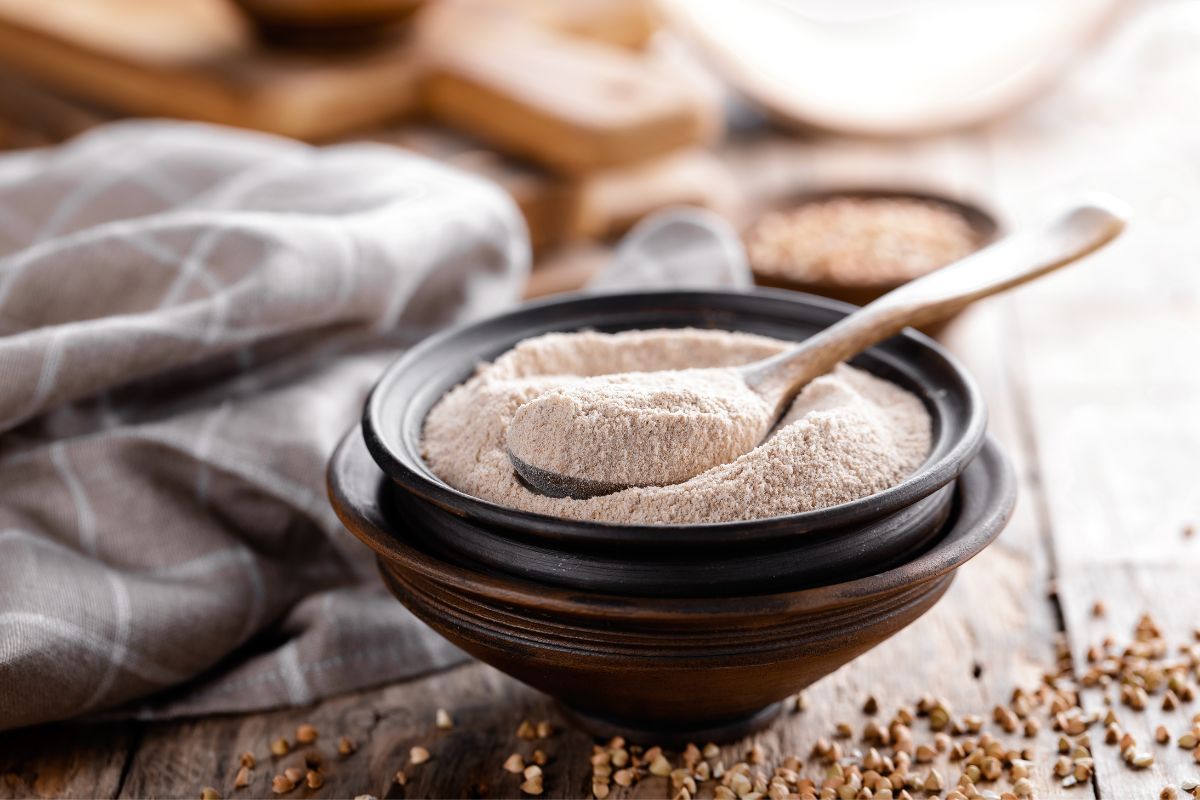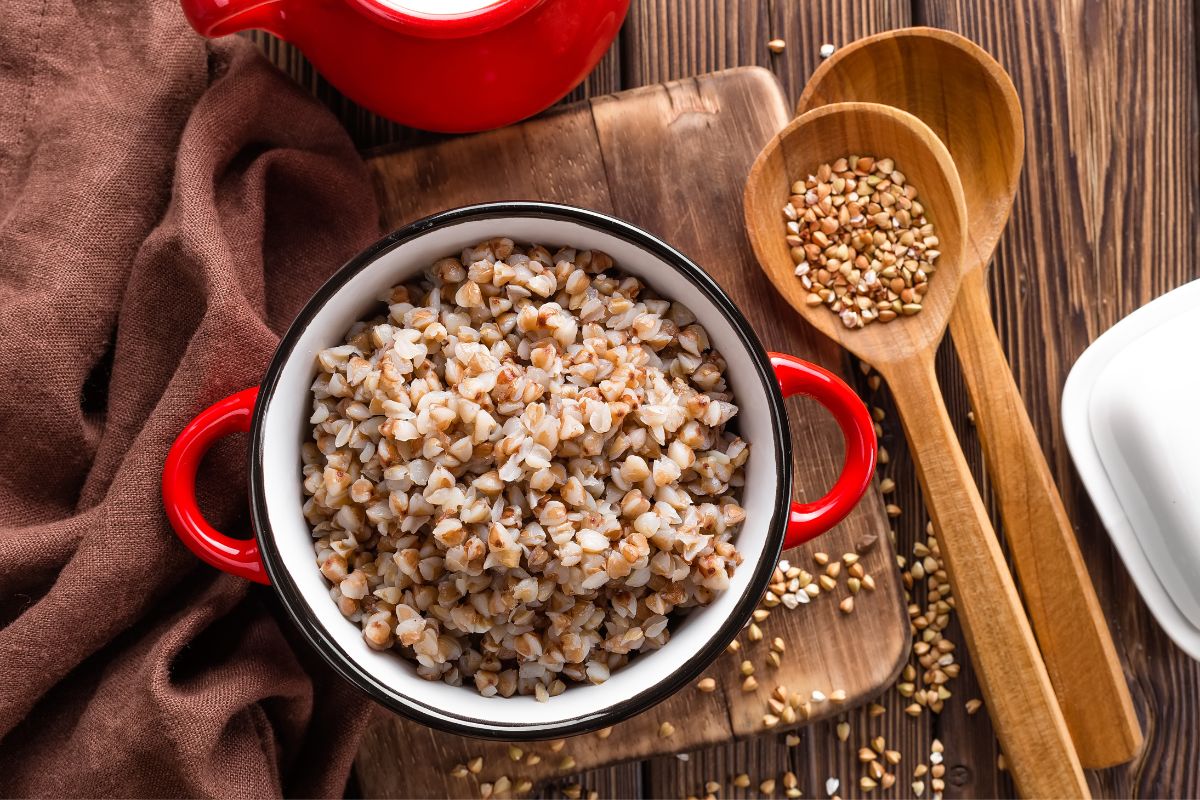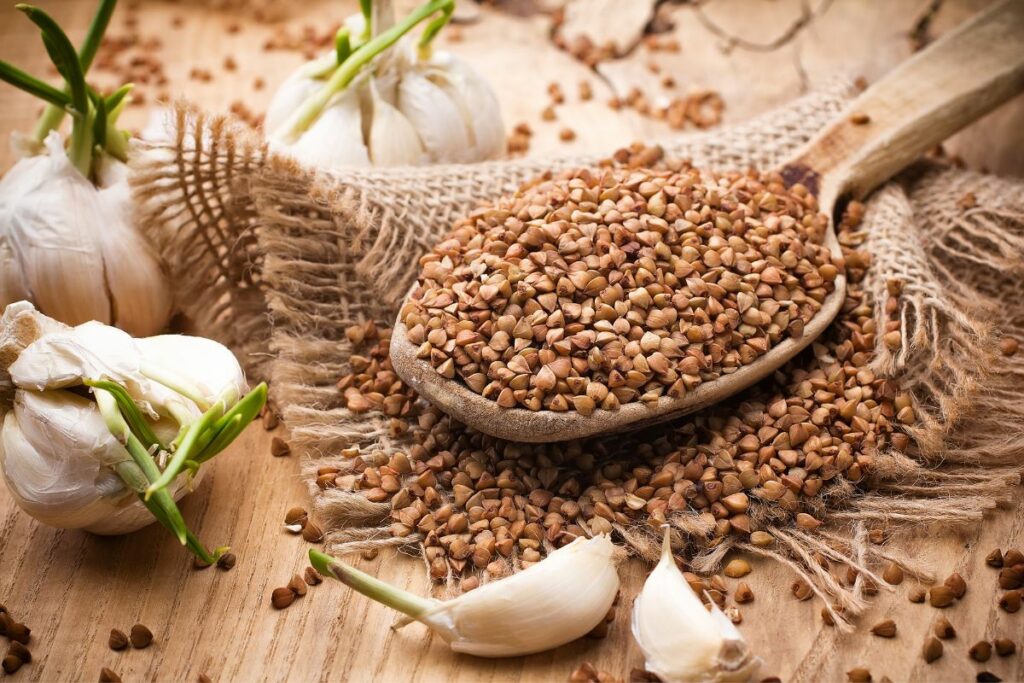Buckwheat? What is that?
Even though several people know the answer to that and have buckwheat in their diet, there are other people who are strangers to it and are missing out on something great.
It is these people who have no idea how to cook and eat buckwheat, and if you identify with them, keep reading below to get all the answers you need about this fantastic food called buckwheat!
What Is Buckwheat?
Buckwheat, together with its toasted sibling, ‘Kasha,’ has gained popularity lately and there’s a solid reason for that.
But let’s start from the beginning. Buckwheat, while commonly referred to as grain, is actually a seed.
In fact, it is a pseudo cereal that belongs to the Fagopyrum family, which also happens to be the name of the seed in languages like Greek.
What makes many people assume it is a grain is the second part of its name, which instantly brings to mind the actual wheat grain.
However, these two foods are not related.
What does this mean?
That buckwheat is not only seed but also that it contains no gluten whatsoever, which, unlike wheat, makes it ideal for people suffering from coeliac disease.
In What Form Is Buckwheat Available?
Buckwheat is available in the majority of supermarkets and grocery stores, while you can also find it in many continental stores, especially ones selling Russian and Asian products.
In most cases, you can find buckwheat groats, that is hulled seeds that you can eat in the same way as rice and barley.
However, pure buckwheat is also sold mostly to manufacturers who produce buckwheat products like noodles and other types of pasta or buckwheat flour.
What Is The Best Way To Eat Buckwheat?
1. Use Buckwheat Flour

Buckwheat flour is a useful ingredient that can replace other types of flour in recipes you want to make gluten-free.
It is also high in protein and offers amazing structure to your baked goods, which is why you can easily use it in almost any recipe.
This means that whether you are in the mood for some pancakes, crepes, or muffins, or you want to bake a homemade, high-protein loaf of bread, this flour can yield some amazing results.
Here are some recipe ideas that use buckwheat flour:
- Buckwheat Pancakes
- Buckwheat Cinnamon Rolls
- Buckwheat Muffins
- Buckwheat Flour Victoria Sponge Layer Cake
- Buckwheat Carrot Cake With Brown Sugar Cream Cheese Icing
- Buckwheat Crepes
- Buckwheat Chocolate Crinkle Cookies
- Buckwheat Flour Bread
2. Use Buckwheat Groats
Buckwheat groats are one of the most common forms you will find buckwheat sold as, and they can be used to make the traditional Russian ‘Kasha’ or be used in other savory and sweet recipes as the main ingredient or a side to cuts of meat.
Here are some ideas to get draw inspiration from:
- Buckwheat Kasha
- Overnight Buckwheat Groats
- Homemade Buckwheat Granola
- Buckwheat Groats With Tofu
- Nourishing Toasted Muesli
- Herb-Buckwheat Groats
- Buckwheat Groats And Beetroot Salad With Chickpeas
- Varnishki (Bow Tie Pasta With Buckwheat Groats)
- Speedy Super Seed Crackers
3. Use Sprouted Buckwheat
Buckwheat groats are also called hulled buckwheat kernels and they are frequently sprouted before you cook them to keep the groats from sticking together.
This is done by soaking raw groats until the sprouts have grown, a process that requires the use of starches, thus reducing the glycemic load of buckwheat.
As a result, they are useful for people dealing with Candida overgrowth or blood sugar spikes.
Moreover, buckwheat, like all grains, nuts, and seeds, has some enzyme inhibitors, which interfere with the absorption of vitamins and minerals, leading to gastrointestinal problems.
Sprouting, however, makes them easier to digest.
As for its use, sprouted buckwheat is suitable for use in any recipe that calls for soaked buckwheat.
The only thing you need to keep in mind is not to let the buckwheat sprout become too long; a couple of millimeters are enough to replace soaked groats.
Some recipes you can thus add it to, in addition to the ones mentioned above for soaked groats, are:
- Sprouted Buckwheat Sourdough
- Sprouted Buckwheat Salad With Basil Pesto
- Raw Sprouted Buckwheat Bars
- Sprouted Raw Buckwheat Porridge
- Crunchy Sprouted Buckwheat Granola
- Sautéed Buckwheat Sprout Pilau With Harissa And Za’atar
What Are The Benefits Of Eating Buckwheat?

It Helps Improve Your Heart Health
Buckwheat aids in the reduction of inflammation as well as the reduction of LDL, or “bad cholesterol,” levels, both of which are essential for the promotion of cardiovascular health.
It Lowers Your Blood Sugar Levels
This pseudocereal has a low GI (Glycemic Index) when compared to several grains and cereals, which means that the absorption of its carb content by our bodies is a slow process that does not ‘shock’ the blood system.
On the contrary, it guarantees a consistent and steady flow of fuel without causing any blood sugar spikes.
Therefore, it is another one of those high-carb foods that, thanks to their fiber content and low GI can contribute to good blood sugar control and better insulin resistance.
It Is Free From Gluten And Non-Allergenic
Although you can use buckwheat in recipes similar to how you would use whole grains like rice and barley, this seed does not contain any gluten, making it an excellent option for individuals who have gluten sensitivity or grain intolerance.
Substituting this seed for gluten-containing grains could also be advantageous for individuals struggling with digestive issues such as irritable bowel syndrome (IBS).
It Has Lots Of Dietary Fiber
Buckwheat contains 6 grams of dietary fiber per cup of cooked groats, a quantity that helps it rank among the high-fiber seeds and grains.
Dietary fiber aids in the streamlined passing of food through the gastrointestinal tract and can offer the feeling of fullness and satiety, which can be beneficial for people looking to shed a few pounds.
It Can Prevent The Risk Of Cancer
This super seed is also rich in antioxidants and phenolic compounds that may aid in the fight against certain cancers.
It also contains flavonoids such as oligomeric proanthocyanidins, which are responsible for protecting our cells from damage caused by free radicals and preventing those threatening inflammations that can lead to the spread of cancer.
It Can Be Part Of A Vegetarian Diet
Even if you enjoy eating meat, having a diet that focuses on plant-based food and healthy grains and seeds are essential if you want to support your body and mind’s health.
Luckily, buckwheat is an excellent source of minerals, vitamins, and protein that is 100% vegetarian and can thus be added to your weekly or even daily meal plans.
The Bottom Line
Buckwheat is an upcoming star in the dietary world, and it has already begun getting the attention it deserves.
Rich in nutrients, minerals, fiber, and vitamins, it is one of the best seeds you can and should add to your diet.
In this article, we had some great examples of recipes you can use buckwheat in, either as flour, groats, or sprouted, so go get some buckwheat from your local supermarket and start cooking!








